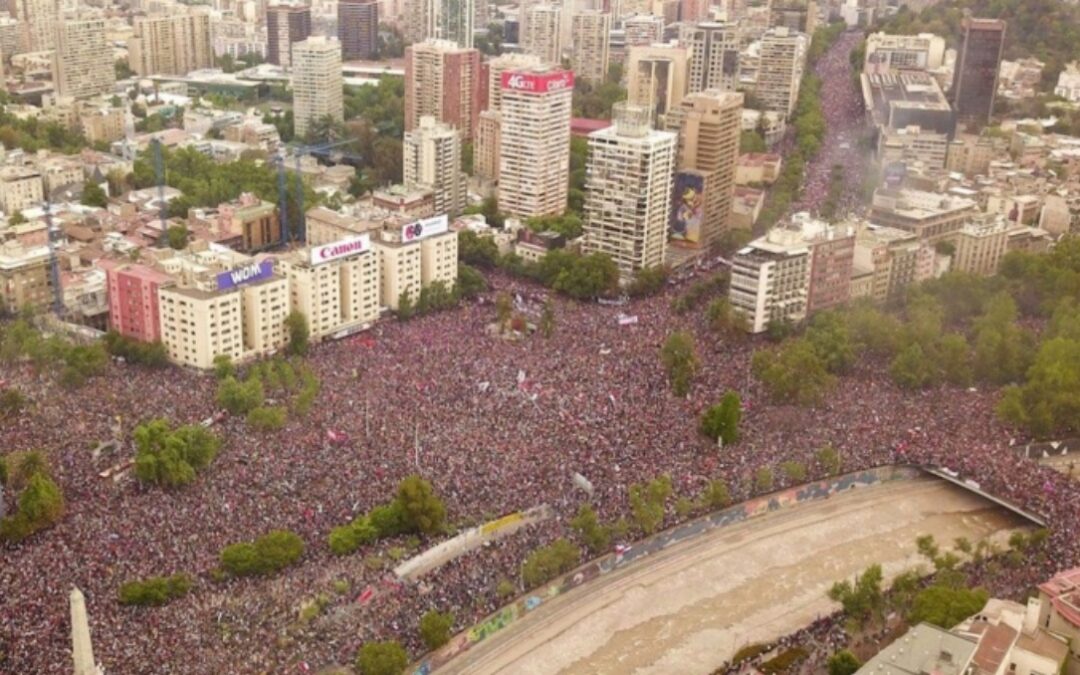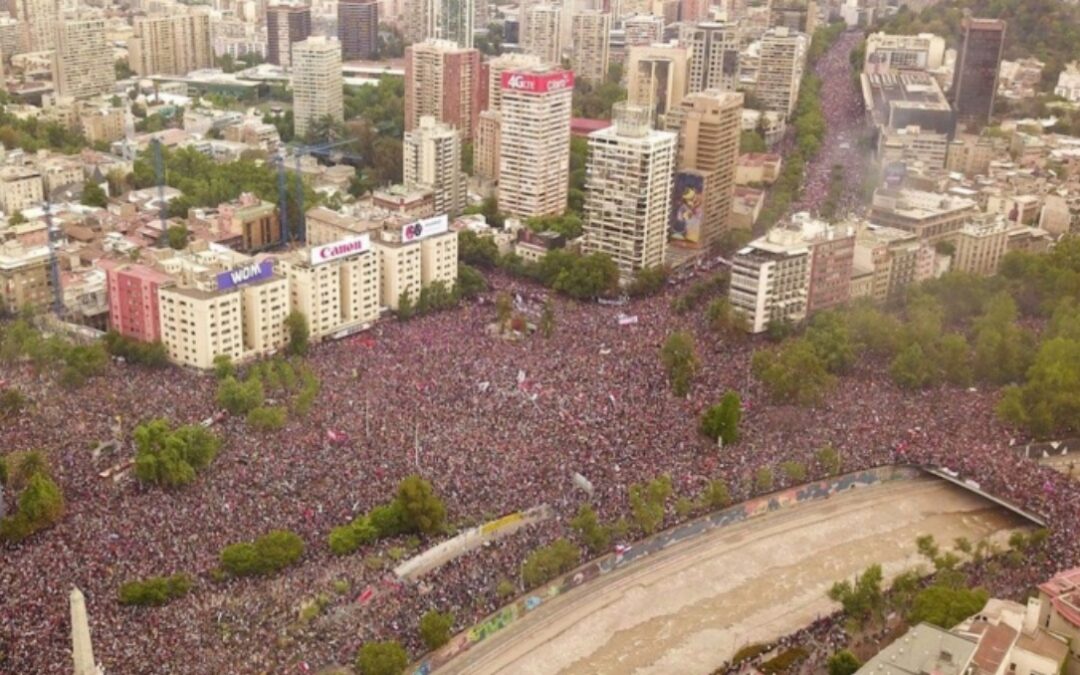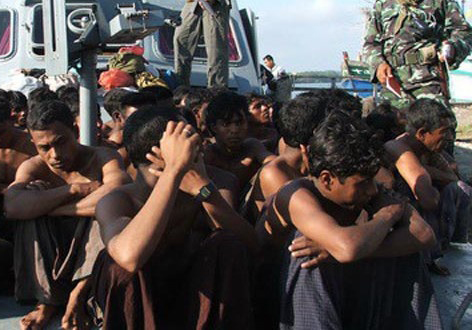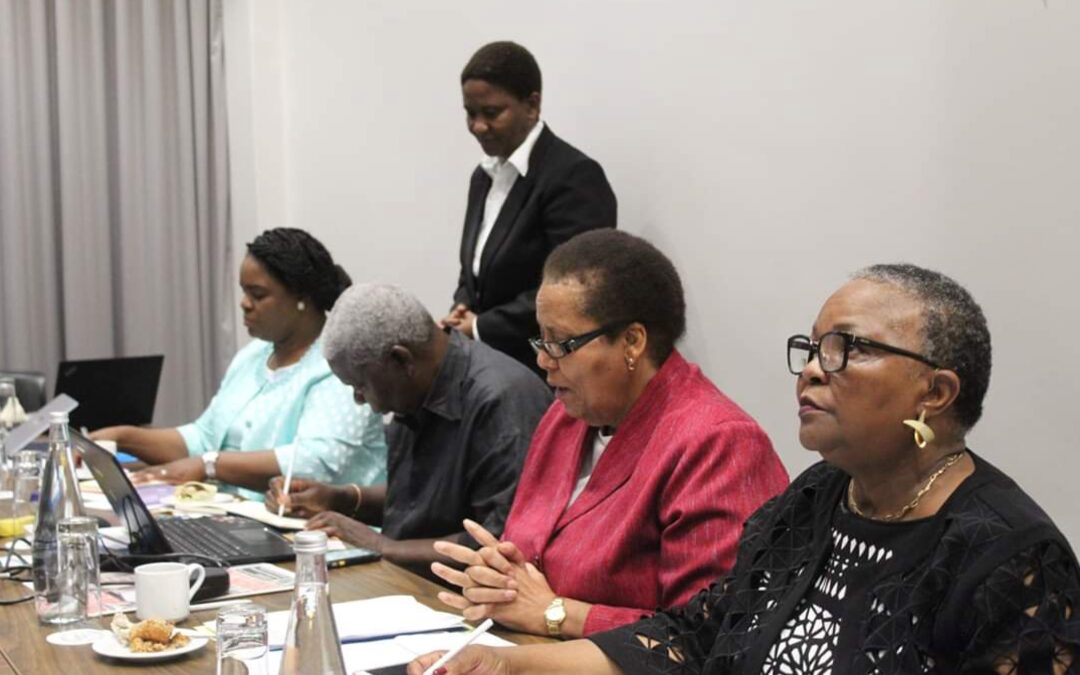
Nov 24, 2019 | Editorial, Noticias
Una opinión editorial de Alejandro Salinas Rivera, Comisionado de la CIJ (Chile)
A casi un mes de iniciadas las protestas sociales, las fuerzas políticas llegaron a un acuerdo que podría permitir abordar la crisis social evidenciada con las protestas.
Durante varios días, millones de personas salieron a las calles para solicitar reformas profundas para garantizar los derechos económicos, sociales y culturales. La mayoría de las protestas fueron pacíficas; sin embargo, algunos actos de violencia fueron perpetrados.
La reacción inicial de las autoridades gubernamentales y de otros líderes políticos no permitió abordar con seriedad las preocupaciones y las demandas ciudadanas. Además, hay denuncias sobre graves violaciones de los derechos humanos cometidas por miembros de la fuerza pública. Por ejemplo, el Instituto Nacional de Derechos Humanos (INDH) indicó que representa a 489 personas que sufrieron actos que pueden constituir violaciones a los derechos humanos, y hay más de 200 personas heridas en los ojos por balines de goma.
Acuerdo político alcanzado recientemente
El 15 de noviembre, los partidos políticos con representación parlamentaria (a excepción del Partido Comunista y de pequeños partidos de izquierda), firmaron un acuerdo político que propone un camino para abordar la crisis: la definición de un procedimiento para adoptar una nueva Constitución.
Pero, ¿por qué es tan importante esto en Chile? Porque la Constitución chilena fue redactada y adoptada en 1980 durante la dictadura militar, y aunque se le han introducido modificaciones durante la democracia (1990), todavía refleja el modelo político y social que gobierna el país. La Constitución siempre ha sido considerada como una camisa de fuerza que impide introducir cambios sociales que el país necesita, ya que otorga al Estado un papel subsidiario en la garantía de ciertos derechos económicos y sociales.
El acuerdo político alcanzado estableció una hoja de ruta para realizar el cambio constitucional. Primero, en abril de 2020 se realizará un plebiscito para preguntarle a las personas: a) ¿Quiere usted una nueva Constitución? (Aprueba/ Rechaza); y b) ¿Qué tipo de órgano debiera redactar la nueva Constitución? (Convención Mixta Constitucional o Convención Constitucional).
En segundo lugar, después de los resultados del plebiscito, se llevarán a cabo las elecciones de los miembros que integrarán el organismo encargado de redactar la nueva Constitución (octubre 2020), y después de su redacción, habrá un plebiscito ratificatorio obligatorio.
Este acuerdo político genera esperanza para que se realice un cambio que permita abordar las demandas sociales y mejorar el diseño institucional que se encarga de garantizar los derechos económicos y sociales. Sin embargo, el acuerdo por sí solo no es suficiente. Es necesario, además, tomar medidas inmediatas que permitan lograr acuerdos sustanciales y fortalecer, ahora, la capacidad institucional.
Otras acciones que deben realizarse
Además del acuerdo político alcanzado, hay otras acciones que se deben realizar. Por ejemplo, se debe:
- Adoptar acuerdos políticos específicos que hagan viable el proceso constitucional acordado y que garanticen que dicho proceso responda a las demandas ciudadanas. Así, debe modificarse la Constitución para permitir la convocatoria al plebiscito, y se debe implementar dicho mecanismo en abril de 2020.
- Adoptar políticas públicas específicas para materializar los derechos económicos y sociales que no requieren cambios constitucionales; solo requieren voluntad política. Por ejemplo, se pueden introducir mejorías significativas a los sistemas de salud, de educación y de pensiones.
- Investigar, de manera pronta y efectiva, la actuación de la policía y de las fuerzas de seguridad en el marco de las protestas. Esto requiere una revisión completa de los protocolos de actuación y, posiblemente, la adopción de reformas institucionales.
- Investigar, de manera pronta y efectiva, las denuncias en contra de miembros de la policía y de las fuerzas de seguridad por violaciones graves de los derechos humanos y, cuando la evidencia lo amerite, enjuiciar y sancionar a los responsables. El rol independiente de los jueces y los fiscales es clave para cumplir con esta obligación.
- Investigar, de manera pronta y efectiva, los actos de violencia cometidos durante las protestas, y cuando la evidencia lo amerite, enjuiciar y sancionar a los responsables.
- Fortalecer las instituciones públicas, como las fuerzas policiales (Carabineros), el Instituto Nacional de Derechos Humanos, las oficinas gubernamentales a cargo de las políticas públicas sociales, entre otras.
En suma, el camino que se avecina no es fácil y está lleno de obstáculos para Chile, pero proporciona una esperanza para abordar la crisis social. Por ejemplo, cambiar la Constitución era una tarea pendiente de la democracia chilena, y ahora parece posible. Entre los próximos pasos se encuentra el diseño de un modelo político y social que garantice la equidad, que permita la solidaridad y que garantice plenamente los derechos humanos.

Nov 24, 2019
An opinion editorial by Alejandro Salinas Rivera, ICJ Commissioner (Chile)
Almost one month after the social protests began in Chile, the democratic political forces have reached an agreement that might enable the country to address the social crisis the protests evidenced.
During the past month, millions of people took to the streets throughout the country calling for deep reforms to guarantee economic, social and cultural rights. Most of the protests were pacific; however, some serious acts of violence were committed.
Initially, governmental authorities and other political leaders’ reactions failed to meaningfully address the concerns and demands of protestors and many in the general public. In addition, there were credible allegations of serious human rights violations committed by personnel of the security forces. For instance, the National Institute of Human Rights (NHRI) indicated it is representing 489 persons that suffered from criminal acts that may constitute violations to human rights, and there are more than 200 people injured in the eyes by the effect of rubber pellets.
Recent political agreement
On 15 November, political parties with parliamentary representation, except the Communist Party and small leftist parties, signed an agreement that establishes the beginning of a path to address the crisis: a procedure to adopt a new Constitution.
But why is this so important in Chile? Because the current Constitution was drafted and adopted in 1980 during the dictatorship. Despite the changes introduced since democracy after 1990, the fact is it still reflects the political and social model that governs the country. The Constitution has always been considered as a straitjacket to introducing social changes that Chile needs to effectively improve the quality of life of its inhabitants, as it does not give a prominent role to the State to guarantee economic and social rights.
The agreement established an itinerary for this constitutional change. First, there will be a popular referendum to be held in April 2020, to ask the people: a) Do you want a new Constitution? (Approve/Disapproved); and b) What kind of body should write the new Constitution? (Mixed Constitutional Convention or Constitutional Convention).
Second, after the results of the referendum, there will be an election to integrate the body that will draft the new Constitution in October of 2020, and after drafting the new Constitution there will be a popular referendum to ratify the draft.
This agreement raises hope for a profound change to address the social demands in Chile and to improve the institutional design for guaranteeing economic, social and cultural rights. However, it alone will not be enough to solve the demands expressed in the protests. There is a need to take immediate actions to achieve substantial agreements for the effective realization of economic, social and cultural rights, and to strengthen the State’s capacity to respond to social demands and to close the inequality gap.
Further steps that need to be taken
Additional tasks remain pending after the signing of this historic agreement. Some of them are,
- Adoption of specific political agreements that makes the constitutional process viable, and that guarantee that it answers to the current social demands. The first major agreement is to establish the terms of the referendum that will call the people to decide on the adoption of new Constitution and to call to the popular vote in April.
- Adoption of specific public policies to materialize economic and social rights that do not require constitutional changes, just strong political will. These would include, for example, real improvements of the pension, health and education system.
- Prompt and effective investigation into the actions of the police and security forces during the protests. This requires a complete review of the action protocols, and possibly, the adoption of changes within the institution.
- Prompt and effective investigation of the complaints against the police and the security forces for serious human rights violations and, where the evidence warrants, prosecute and sanction those responsible. Independent judges and the prosecutors are key to fulfilling this obligation.
- Prompt and effective investigations of the acts of violence committed during the protests that affected and damaged the country and bring those responsible to justice.
- Strengthening public institutions, such as the police forces (Carabineros), the National Institute of Human Rights, Government’ offices in charge of social public policies, among others.
The road that lies ahead is not easy and it is full of obstacles, but it opens a path of hope. For instance, changing the Constitution was a pending task of Chilean democracy, and now it seems possible. The next steps are to design a political and social model that guarantees equity, allows solidarity and fully respects human rights.

Nov 22, 2019
An opinion piece by Sean Bain, ICJ International Legal Adviser in Myanmar.
How international justice initiatives can support peace and justice in Myanmar
Gross human rights violations in Myanmar may constitute the most serious crimes under international law and so carry global significance. Yet the Naypyitaw authorities have failed to fulfil their obligations to address these crimes by conducting the investigations and prosecutions to enable accountability in line with international law.
In response to this situation, several justice initiatives focused on Myanmar are gaining momentum at an international level.
Drawing upon the International Commission of Jurists’ expertise in international law, this article gives an overview on three initiatives: the establishment of an independent investigative mechanism for Myanmar; an investigation by the International Criminal Court; and a case under the Genocide Convention at the International Court of Justice. A background is first provided through an overview of the fact-finding mission’s report and the Myanmar government’s response.
The fact-finding mission’s report and the government’s response:
The Independent International Fact-Finding Mission on Myanmar (FFM) recently concluded its mandate and closed its offices, 2½ years after its establishment by the Geneva-based UN Human Rights Council in March 2017. The FFM included investigators from Indonesia, Australia and Sri Lanka, supported by a team of researchers and lawyers from around the world. The FFM is separate from the special rapporteur on human rights in Myanmar, who is also mandated by the Human Rights Council since 1992 and produces regular reports on a wide spectrum of human rights concerns.
The mandate of the FFM was twice extended in response to the changing human rights situation. Despite being denied access to Myanmar, through technology and travel the FFM interviewed more than 1,000 victims of rights violations and met hundreds of others from the country.
The FFM produced several reports on human rights and democracy. Its 444-page report published in September 2018 focused on three “emblematic situations”: in Kachin and Shan states; in Rakhine State; and of the democratic space and the exercise of fundamental freedoms more broadly. In 2019 its reports also focused on sexual violence in conflict areas and the military’s economic interests.
It also touched on the human rights impacts of fighting between the Tatmadaw (military) and ethnic armed groups on Karen, Rakhine and Chin communities.
The findings across the reports are gross human rights violations have occurred, many constituting serious crimes under international law, including crimes against humanity, war crimes and possibly genocide. It said these crimes persisted with impunity throughout the country, undermining the development of democracy and the rule of law. It said steps to address this situation were known and necessary.
In each report, the FFM proposed legal and political steps to address the human rights violations identified. Importantly, the top recommendations were first addressed to the Myanmar authorities, both civilian and military, which share the primary duties under international law to respect and to protect human rights.
The FFM also provided recommendations to the United Nations and the international community and to non-state armed groups, civil society groups and businesses operating in Myanmar. Each now shares responsibility to consider and appropriately respond to the FFM’s recommendations.
The Myanmar government consistently rejected the FFM’s findings on the grounds that its approach and reports were biased and wrong. Yet most residents the FFM interacted with disagree with this, as does the International Commission of Jurists. Most states around the world also accept the FFM’s findings and disagree with Myanmar’s response, further evidenced this month in a resolution of the UN General Assembly in New York which was sponsored by more than 100 states.
While the authorities require independence, competency and the will to investigate these crimes, Myanmar’s justice machinery fails these tests. So too does the military justice system, as underscored by the early release of soldiers implicated in the massacre of 10 Rohingya males in Inn Dinn Village in Rakhine State, highlighting part of the reason why prosecutions for gross human rights violations should only take place within the civilian justice system.
Two special domestic initiatives have been established in response to recent international scrutiny: the “Independent Commission of Enquiry,” announced by the President’s Office in May 2018 and a special military tribunal formed in March 2019. Neither has produced any substantive public reports, and their composition and mandates fail to satisfy basic tests of independence and impartiality. Both fail to consider the FFM’s findings outside Rakhine State, particularly in the conflict-affected northern states.
They appear designed to deter international responses, rather than being genuine efforts to provide truth, accountability or other forms of justice. It is largely for this reason that the international community have been compelled to initiate alternative responses, which are discussed below.
The Independent Investigative Mechanism for Myanmar (IIMM)
Upon the recommendation of the FFM, the UN Human Rights Council created the IIMM through a resolution in September 2018. The IIMM is separate to the FFM and similar to a mechanism established for Syria in 2016. The IIMM is tasked to gather evidence and prepare case files to enable prosecution of individuals responsible for the most serious crimes under international law in national, regional or international criminal courts. Crimes within its mandate could have occurred anywhere within Myanmar since 2011. The decision to spread its scope across the whole country was made to consider the situation of victims’ groups. The temporal limitation back to 2011 directs investigators to focus their limited resources on the most recent crimes for which evidence can be best prepared for effective prosecutions. Extending this further back, for example to historically significant dates in 1988 or 1962, was considered to fall outside the reasonable scope of a criminal investigation of this nature.
While it will use information gathered by the FFM as part of its criminal investigation, the IIMM is unlikely to advocate for legal or policy reforms in Myanmar. Its core purpose is to prepare the case files that could be used in future trials, in courts that respect fair trial standards. The IIMM does not have a courtroom of its own, and cannot arrest people or hold trials. Hosts for trials could include countries that in their laws adequately provide for criminality liability for the most serious crimes under international law and are willing and able to investigate and prosecute crimes that occurred outside their territory, known as “universal jurisdiction”. Under this principle, advocates have already sought to bring cases against individuals from Myanmar, in Australia and Argentina. Another alternative is the International Criminal Court, which is now investigating the situation, or an ad hoc international criminal tribunal.
In future, IIMM case files could be used to support domestic justice processes inside Myanmar, but only if this meets international fair-trial standards while protecting victims and witnesses. Based on global experience this is possible, though unlikely any time soon.
In July 2019, the IIMM’s head Nicholas Koumjian commenced the task of building this new institution. An experienced international prosecutor, he leads a team of around 20 staff. This is likely to grow to almost 60, including investigators, analysts, translators and lawyers. Based in Geneva and presently denied access to Myanmar, the IIMM will seek to be closer to victims and others with information. Its staff will rely on cooperation with states and civil society groups, particularly in Asia, and will likely cooperate with other credible initiatives.
The International Criminal Court (ICC)
Myanmar is not a state party to the Rome Statute, the international treaty establishing the ICC. Therefore, the ICC generally does not have jurisdiction over crimes taking place within Myanmar unless the UN Security Council was to refer the situation to the ICC. This has not happened in the case of Myanmar, due to geopolitical considerations. The Myanmar government itself could refer the situation to the ICC, which at this time is inconceivable.
Despite these jurisdictional limitations, on Nov. 14 the court authorized an investigation into the situation in Bangladesh and Myanmar. Unlike Myanmar, Bangladesh has ratified the Rome Statute and therefore any crime taking place on its territory is subject to the jurisdiction of the ICC. The legal basis for the ICC’s jurisdiction is that the conduct constituting the “crime against humanity of deportation” started in Myanmar and then concluded in Bangladesh when more than a million Rohingya refugees crossed the border. Because part of the crime occurred in Bangladesh, the court has jurisdiction over this crime.
Other alleged crimes could also be looked at in an investigation, including the “crime against humanity of persecution”.
To date, there have been five key steps in this process. First, in April 2018 the ICC’s chief prosecutor, Fatou Bensouda, asked judges of the court to indicate if they agreed with her proposed legal basis for jurisdiction over the deportation of Rohingyas into Bangladesh.
Several organizations lodged amicus curaie (“friend of the court”) submissions in support of this position, including the International Commission of Jurists. Second, in September 2018, a pre-trial chamber of the court found that the ICC should indeed have jurisdiction over this specific crime, and potentially other crimes where at least one element or part of a crime took place in Bangladesh. Third, as a result, the prosecutor then initiated a “preliminary examination” into the situation, to further assess if the gravity of the alleged crimes warranted an investigation, and to determine if the domestic authorities were fulfilling their duty to undertake that investigation. Fourth, in July 2019, the prosecutor submitted her report to the court, recommending it authorize a full investigation, on the basis that the allegations are credible, the situation grave and that the domestic authorities have proven unwilling to investigate. At this time victims also had an opportunity to provide views for consideration by the court. Fifth, on Nov 11, the court authorized an investigation of alleged crimes with a cross-border element in Bangladesh and Myanmar occurring since October 2016. In its decision, the court noted the credible documentation of crimes by other initiatives and the lack of a credible investigation by domestic authorities.
Now that the investigation is authorized, a new phase of the process commences involving professional criminal investigators. An important focus will be linking the criminal acts to those responsible, for example, military commanders who may have ordered or been otherwise complicit in the crimes. If perpetrators are identified and cases built, arrest warrants could be issued. As the ICC has no police force, executing an arrest warrant would require cooperation from other countries and it may also require those indicted to travel into the territory of a state party of the ICC. Each step is complex, unpredictable and can take a long time. Sometimes the process fails, as is the case of the Sudan, whereby then-president Omar al-Bashir was able to travel freely despite being subject to an ICC warrant. But separate to arrests and prosecutions, the mere threat of these being carried out can also change political calculations, including potentially deterring the reoccurrence of crimes in the future.
The International Court of Justice (ICJ)
With the situation of Rohingyas, Myanmar is alleged by many states and independent observers to have violated its international treaty obligations under the 1948 Convention on the Prevention and Punishment of Genocide. This treaty places legal obligations on states to prevent and to punish genocide. On Nov. 11 the Gambia, with the apparent encouragement of other states, lodged an action at the International Court of Justice, as a means to compel Myanmar to meet its obligations under this treaty to which the Gambia is also a party.
The International Court of Justice is sometimes called the world’s highest court, with primary responsibility for adjudicating disputes between states on questions of international law. Entirely independent from and different from the IIMM and the ICC, which focus on accountability for individual perpetrators of crimes, the International Court of Justice (ICJ) addresses the responsibility of the state. The ICJ does not judge the criminal responsibility of individuals. It makes authoritative legal rulings, and its judges can prescribe measures that states should take, including reparations, criminal prosecutions and preventive actions. Its rulings in contentious cases are legally binding on the parties.
The ICJ can make a finding on whether genocide has taken place and whether Myanmar is responsible for committing genocide. Alternatively, the court could also rule that Myanmar has not complied with the Genocide Convention in some other way, such as by failing to prevent or punish genocide.
While proceedings could potentially extend for years, the Gambia has requested that the court also impose “provisional measures” requiring Myanmar to take urgent action to prevent potential violations of the convention, and for the court to supervise the implementation of the measures, which are also legally binding.
The Gambia contends that the “clearance operations” conducted by Myanmar security forces, first starting in October 2016, and then recommencing in August 2017, were intended to destroy the Rohingya as a group, in whole or in part, through acts including murder, rape and the destruction of villages. The Gambia’s “application to institute proceedings” contends that these acts violate the Genocide Convention, and states that Myanmar has responded to this claim by denying any wrongdoing. The Gambia has requested the court to make a legal declaration that Myanmar has breached its treaty obligations, that violations of the Genocide Convention must cease, that those responsible for violations must be punished, and for victims to receive reparations and guarantees that violations will stop. The Gambia has requested the court impose provisional measures requiring Myanmar to take several actions: ensure violations cease from unlawful killings to the destruction of land and deprivation of food; ensure evidence related to the alleged violations is not destroyed, and to report back to the court on progress within four months.
The convention lists five different acts that constitute the crime of genocide if “committed with intent to destroy, in whole or in part” a particular group. Contrary to some translations and understandings of the term genocide, it does not require the annihilation of a group. For example, Jewish people continue to exist as a group despite the killing of millions during the Holocaust in Europe, as does the Tutsi population, who the International Criminal Tribunal for Rwanda found had experienced genocide.
The ICJ has already considered two treaty disputes related to the Genocide Convention in the former Yugoslavia. Compared to the IIMM and ICC, the Myanmar government has already indicated an intention to participate in this process, despite contesting the allegations. Naypyitaw has not disputed the jurisdiction of the ICJ and indicated that State Counselor Daw Aung San Suu Kyi will herself attend hearings in the Hague.
Achieving justice for gross human rights violations
Respecting and protecting the human rights of all persons must become a core value of the Myanmar government. The state’s inaction in the face of the most serious crimes under international law severely undermines prospects for peace and democratization, by giving confidence to perpetrators that their crimes will go unpunished.
This creates contempt for the rule of law and human rights – and often exacerbates pre-existing tensions within a society. Senior civilian and military figures must be compelled to reconsider ordering or failing to prevent or punish human rights violations. International justice initiatives emerging in response to the situation in Myanmar are important steps toward this, in addition to their prospects for facilitating criminal accountability, or for compelling the state to meet its legal obligations.
Ultimately, solutions to persistent human rights violations must be generated and pursued from within the country, though this is necessarily a long-term objective. International justice initiatives are not a complete substitute for national justice processes of truth-seeking, reparations, institutional and social reform, and domestic prosecutions. They should instead be viewed as tangible steps toward compelling these processes, as complementary to them, and therefore welcomed by anyone wishing for peace, democracy and justice in Myanmar.
To download in Burmese, click here.
This article was first published in The Irrawaddy, available at: https://www.irrawaddy.com/opinion/international-initiatives-can-support-peace-justice-myanmar.html. It is also published in Burmese, available at: https://burma.irrawaddy.com/opinion/viewpoint/2019/11/23/208868.html

Nov 22, 2019 | News
A wide range of stakeholders in Mbabane, Eswatini came together to discuss the challenges they face in combating sexual and gender-based violence (SGBV) in the country.
On 21 November, the ICJ hosted a symposium with representatives of the Attorney General, Ministry of Justice, police, Human Rights Commission and Law Society on cases involving economic, social, and cultural rights and SGBV. The event was followed by an integrated meeting involving State officials in the justice sector to discuss the implementation of the Sexual Offences and Domestic Violence (SODV) Act was discussed.
The Kingdom of Eswatini faces widespread instances of SGBV and it is hoped that new initiatives, such the enactment of the Sexual Offences and Domestic Violence (SODV) Act in 2018, will be effective in addressing the scourge of SGBV in the country.
The symposium was led by Justice Qinisile Mabuza, Principal Judge of the Eswatini High Court and ICJ Commissioner, accompanied by ICJ Commissioners Justice Sanji Monageng of Botswana and Professor Michelo Hansugule of the University of Pretoria, and Justice of the High Court in Zimbabwe Amy Tsanga. The ICJ’s Senior International Legal Adviser Emerlynne Gil gave a presentation on gender stereotypes and international legal standards on SGBV ICJ Africa legal associate Khanyo Farisè and ICJ consultant Mary Pais Da Silva also participated in the symposium.
Speakers emphasized the critical role of the judiciary and other justice sector actors in ensuring that Eswatini meets its legal obligations under international human rights law, including standards governing the African region, to protect survivors of SGBV.
“The judiciary is a critical component in the intervention against SGBV. The judges have to know about human rights, appreciate what SGBV actually entails, understand what those violations mean, and the international standards and local roles where they exist. Judges also should be able to use jurisprudence from other jurisdictions to justify their decisions,” Commissioner Monageng said.
The participants of the symposium, were subsequently joined by representatives from the Department of Public Prosecutions (DPP), the One Stop Care Centre for sexual violence survivors, and the Deputy Prime Minister’s Office, came together to discuss the implementation of the SODV Act. Recommendations included better collaboration with judicial actors, the training of law enforcement agencies on receiving report of sexual violence, better case management and the development of forensic laboratories were made.
Contact
Khanyo Farisè (Legal Associate): e: Nokukhanya.Farise(a)icj.org
Shaazia Ebrahim (Media Officer): e: shaazia.ebrahim(a)icj.org








